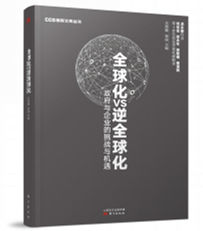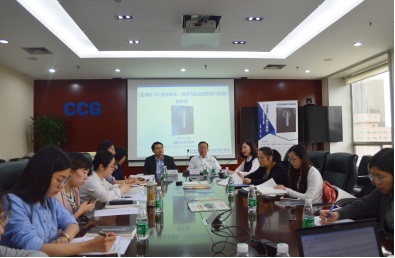By Li Shouen, CCTV.com Commentator & Panview Editor-in-Chief
2016 witnessed a rising tide of trade protectionism and anti-globalization sentiment, characterized by a series of unexpected events such as Brexit and Donald J. Trump's winning of the U.S. presidency.
The trend continues into 2017: on April 18, far-right French presidential candidate Marine Le Pen said to her grassroots supporters at a campaign rally in Paris that, if elected, she would suspend all immigration to France.
Labeled as a Trump-style populist and known for her staunch attitude of anti-globalization, earlier she had promised to take France out of NATO, the eurozone and the European Union; and she is gaining her momentum for the lead among all the candidates.
Not only France. According to a Xinhua News analysis, Europe's biggest far-right parties, including Alternative for Germany (AfD), Austria's Freedom Party, Belgium's Vlaams Belang, the Czech Republic's Dawn of Direct Democracy, and Italy's Northern League, are hoping to secure election wins this year.
Economic globalization was once viewed as the driving force for the world's rapid economic growth and welcomed by most nations across the world, but today, many people find that globalization seems to be at a crossroads.
Should we blame globalization for all the chaos? Will globalization be reversed? What kind of globalization do we need in the future? What challenges and opportunities are China facing? What role can China play in furthering globalization?
To answer these questions, Center for China & Globalization (CCG), China's first think-tank that focuses on the research of globalization, launched its newly finished book "Globalization vs. Anti-globalization: Government and Enterprises' Challenges & Opportunities" on April 20 here in Beijing.

The newly launched book "Globalization vs. Anti-globalization: Government and Enterprises' Challenges & Opportunities" Photo/Zhao Yingxi
CCG Director and co-compiler of the book Wang Huiyao pointed out that indeed certain defects have emerged in the process of globalization; and it is also necessary for the international community to re-charter the route of future globalization.
China has actually benefited a lot from globalization, especially since it joined the World Trade Organization (WTO) more than 15 years ago. On the other hand, China is also one of the major contributors to promoting globalization in the past decade.

Experts join in discussions on globalization and anti-globalization during the launching Photo/Zhao Yingxi
In Chinese President Xi Jinping's keynote speech at the opening plenary of the 2017 annual meeting of the World Economic Forum (WEF) in January, he called for joint efforts to chart the course of economic globalization and forge new models of global growth, cooperation, governance and development.
Contrary to President Trump's trade protectionism stance, Xi's Davos speech, with Chinese wisdom, experiences and confidence, grabbed the attention of global elites; some Western observers even stated that there seemed to be a role swap between U.S. and China in promoting globalization.
Chinese Vice Premier Zhang Gaoli delivered a keynote speech at the opening plenary of the 2017 Boao Forum for Asia (BFA) on March 25. This year’s BFA theme was "Globalization and Free Trade: the Asian Perspectives." Zhang Gaoli systematically outlined China's proposition in furthering globalization on this occassion.
In his Davos speech, President Xi also pointed out: Whether you like it or not, the global economy is a big ocean that you cannot escape from. Any attempt to cut off the flow of capital, technologies, products, industries and people between economies, and channel the waters in the ocean back into isolated lakes and creeks is simply not possible. Indeed, it runs counter to the historical trend.
So, from China's perspective, what we should do nowadays is, not to close our door and isolate from each other; instead, we need to find new solutions to upgrade it and push forward a new round of globalization, which should be more inclusive and multi-dimensional, so as to focus more on the development of the developing and underdeveloped nations.
And one of the most important public goods and a fresh energy to continue to boost the globalization is the Belt and Road Initiative proposed by President Xi more than three years ago.
In another 20 days, 28 state leaders, together with leaders from more than 60 international organizations and some 1,200 representatives from more than 110 countries, will participate in the first Belt & Road Forum for International Cooperation to be held here in Beijing.
The forum can serve as a platform for discussions, exchanges and coordinations to explore ways to address regional and global economic problems, generate fresh energy for interconnected development, and ensure that the Belt and Road Initiative delivers greater benefits to the people of the countries involved.
(The opinions expressed here do not necessarily reflect the opinions of Panview or CCTV.com)

Panview offers a new window of understanding the world as well as China through the views, opinions, and analysis of experts. We also welcome outside submissions, so feel free to send in your own editorials to "globalopinion@vip.cntv.cn" for consideration.















